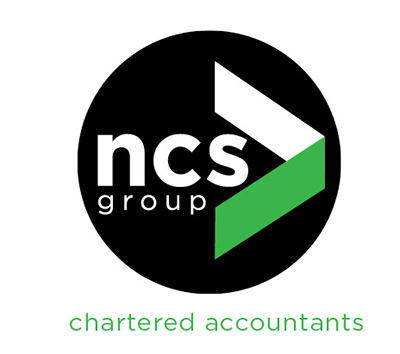FOR SOMEONE like Emily Jaksch, who helps businesses to evolve, it makes perfect sense for her own business interests to continually evolve.
While she is probably best known for her recruitment, people management and leadership training group – HR Gurus – Ms Jaksch’s two other businesses are taking on lives of their own. Even the one that is personally branded: Emily Jaksch.
Ms Jakisch started HR Gurus in 2010 as a human resources (HR) consulting business for the SME market and that entity has now morphed into a ‘leadership coaching’ business offering business transformation and culture change services. Today it employs three people.
“The vision behind the business was that small business is the biggest employer in Australia – and they don’t have the budget for or they don’t need a full HR function, but they definitely have HR issues,” Ms Jaksch said. “HR Gurus became an outsourced HR function for SMEs.
“I was 32 and I had worked in corporate HR for 11 years before that,” she said of her time with Royal Bank of Scotland, General Motors Holden, Wesfarmers and Coles, “so I’d seen the problem emerging. 
“Our biggest product at HR Gurus is a virtual HR manager service. That allows small business to get access to a qualified experienced HR manager level person – without having to employ them. Which worked really well and that business has been relatively successful.”
While HR Gurus is still ticking along nicely, the way HR has changed – in an economy that is increasingly opting for ‘gig’ employment – and the way Emily Jaksch’s own business aspirations have evolved, new doors have also opened.
“We still do the HR consulting, but initially it was all about coming in and helping the small business to set up their HR function – so it was very much HR compliance based,” Ms Jaksch said. “That business we are now morphing more into a leadership coaching business, where instead of getting the call from the business – when they are in trouble and need a quick fix – the whole philosophy has changed into we want to be more proactive.
“I am working with business owners and leadership teams so that they don’t have these problems … because they are coaching and leading their staff more effectively.
“Instead of being the business that gets called when there is a problem, what we do now is work with the business owner on what is my strategy, mission, vision, values and then what is the business strategy that I need to plug into that which will help these people to grow and be successful?
“We would get the call and go in and have to tell them that the root of their problem was that their leadership team had no training in how to deal with these issues,” Ms Jaksch said. “Or, this problem is occurring because you have not defined what your values are, so you are hiring the wrong people, and also not holding people accountable to your values.
“Therefore that is what is causing performance issues.”
As part of the HR Gurus transformation, the business has linked up with a ‘sister’ company to handle the more straightforward tasks, such as where a client simply wants someone to come in and terminate a staff member. That is referred to and handled by staff at the allied company.
“We are still aiming to service those clients but in a different way,” Ms Jaksch said.
“ We now work with pro-active clients that are interested in what we are doing for them in terms of taking a leadership approach – and doing preventative work that pre-empts HR problems.”
AGED, HEALTH CARE RECRUITING
It was a client, impressed with the work that HR Gurus was doing, that led Ms Jaksch and her team into a whole new specialised area of recruitment.
“In 2016 started We Care Recruitment, which is a specialist aged and health care recruiter, which employs two people,” Ms Jaksch said.
“One of our biggest clients that we were doing HR consulting for was building five aged care facilities. They asked if we were interested in doing the recruitment for them.
“We said we had never done that before and they said okay, we trust you. Go and do it.
We did so and got amazing results in terms of our time-to-deal and our placement ratios. It was about 1.4-to-one, so they only had to do 1.4 interviews to get a placement. The industry standard is three-to-one.”
The reason We Care Recruitment is successful is the firm has a unique approach in values-based recruitment.
“So we help them (the clients) to find their value and we now embed that in the recruitment interviewing process,” Ms Jaksch said. “We only hire people that are aligned with their values.
“That business is growing and we are trying to expand into health care now, at which we are doing quite well. It is a big growth industry.
“We are really pitching ourselves as different because we have a different pricing structure.
“For volume based recruitment, we don’t do placement fees. We do a retainer and we recruit as many people as we possibly can in that retainer.
“Or we do hourly-based recruitment, which means we get paid for what we do, which seems to work really well. And then, with our placement fee structure we do a flat fee. So based on the specific role, we lock down the fee so that they know what they are paying, not based on the salary or package,” Ms Jaksch said.
“We have a lot of clients that don’t really like recruitment agencies … because they often find the most expensive person they can find and get them in, because they get more money – which is unethical and stupid.”
EMILY JAKSCH, HERSELF
In 2018, Emily Jaksch launched her speaking and coaching business “with a goal of changing the dialogue around Millennials”.
“Through a commitment to research and data, my passion is around creating the next generation of Millennial leaders,” Ms Jaksch said.
“I have just launched a new business which is just under my name, Emily Jaksch. That is really around pitching myself as a millennial expert. I was getting asked to do a lot of speeches around Millennials and I had a lot of my clients asking the same questions: How do I get into millennials, how do I understand them?
“I started doing all this research to try to understand.
“I embarked on a research journey myself. I had never done research before. So I paid a lot of money to a company called Honeycomb Strategy to conduct that research. It cost me $30,000,” she said, to survey 1000 random Millennials.
“I made it really specific. A lot of the research out there is very general and is actually from the US. So I realised we had all been reporting on inaccurate data as it is irrelevant in Australia.
“So I commissioned my own study called The Australian Workplace Millennial Study. I really delved down into what millennials want in the workplace, what are their motivations, what are their values, how long they have been with their current employer.”
With that research, Emily Jaksch produced an e-book with all the data explained.
“I have also written a book which I am about to launch called Why the Gap? – Are Millennials the Most Misunderstood Generation of Our Time?
“The goal of that business is to really change the dialogue around Millennials. Because it is very negative at present. The media seems to bash Millennials … it seems to have become a national sport. I think it is unhealthy and really stupid.
“I’m not a Millennial, I am 42, on the cusp. But I feel we have created this divide and a lot of the Millennials I speak to feel disenfranchised and really disengaged. In workplaces they are constantly being put down … ‘oh be quiet you are just a Millennial’.
“What I have done is to create coaching programs for millennials, because a lot of them are leaders now and need to be the best that they can be.”
Importantly, Ms Jaksch has also created coaching programs for leaders who are managing Millennials. All this is designed to challenge people’s beliefs about Millennials, defined as those born between 1981 and 1995.
“What we really need to do is to help business leaders to understand that we need to embrace them – and they are coming. By 2025 they are going to make up two-thirds of our workforce.
“According to my research a huge proportion of them are already leaders. The way they lead is going to change the way we do business.
“We need to get out of the way and let them come in and do what they need to do. There are so many great millennial stories. They are going to make amazing leaders as they are highly coachable, especially for personal development.” 
In her training courses and books, Ms Jaksch talks about the new Millennial characteristics and gives examples of inspirational millennials that have started businesses.
“It changes the whole narrative that they are selfish and lazy and still living with their parents. It’s wrecked,” Ms Jaksch said.
“My big goal is to create the next generation of Millennial leaders. That will have a big impact on the world. They are already shaping the world around is and a lot of the shaming is fear. They are changing the way we do business.
“If you think about massive game changing millennials who have disrupted industries you think about Mark Zuckerberg and Facebook; you think about Nick Molnar, an Australian who is one of the founders of Afterpay – now that is an extremely disruptive business model. Uber was created by American millennials.
“The reason we are afraid of them is that they are disrupting business and making whole industries obsolete. We misinterpret some of that drive and disruptive nature as them being upstarts and them not being respectful is the way I see it.”
Emily Jaksch’s businesses may not specifically revolve around her any more – but they certainly evolve around her. 
www.hrgurus.com.au
www.wecarerecruitment.com.au
www.emilyjaksch.com
ends












